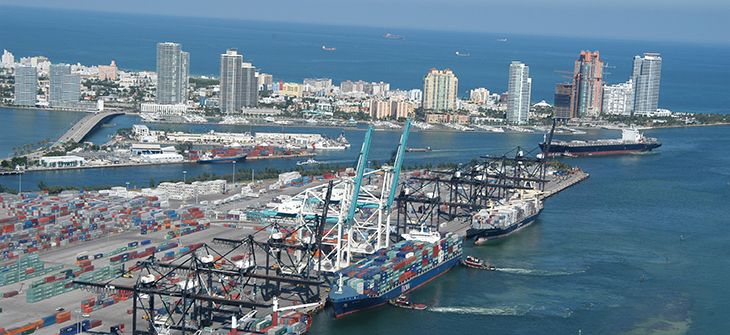- Indigenous Firm to Spend N137.5bn on Industrial Island
Genesis Worldwide Shipping Company which owns Integrated Oil and Gas Company, has announced that the total amount that will go into completion of its industrial free trade zone, also known as Tomaro Island, will be about $450m (N137.5bn).
The Chairman of the company, Captain Emmanuel Iheanacho, disclosed this on Tuesday while leading men of the Nigeria Customs Service, the Nigeria Export Processing Zone Authority and journalists on a facility tour of the Island.
Iheanacho, whose firm had earlier secured a grant of $1m from the American government to facilitate market study for the detailed engineering master plan of the island, said there were major investments in Tomaro Island spanning the oil and gas and maritime sectors.
He stated that the island would have a modular refinery with 20,000 barrels per day refining capacity, storage and re-supply tank farms with one billion litres storage capacity, as well as a slipway for local ship buildings with 15,000 tonnes capacity and dry dock facility where ships could load and discharge.
“When the country has issues with fuel supply, the Nigerian National Petroleum Corporation will be able to draw fuel from here for 15 days to supply the country until the problem is sorted out,” he noted.
According to Iheanacho, the tank farms are structured in such a way that they supply to ships and pump back from ships into tank farms located around the island.
“This tank farm is different from every other tank farm that relies on arrangement where ships supply tank farms and then lorries come and pick up the supply, but because we are located on an Island and because of the function that they are designed for, we supply by ship then actually pump back by ship to the tank farms that are located to the West,” he explained.
On the shipyard, he said that it would position Nigeria among ship building nations in the world and create over 2,000 jobs for the local people.
Iheanacho added, “Nigeria has for a long time wanted to be a builder of ships; now, the private sector is making this a reality. The jetty for berthing and loading vessels will be ready in nine months.
“The Tomaro Island is an industrial zone designed on the western side to attract people who will do manufacturing. We will set up 30 one-hectare plots for warehouses, plant house, office and manufacturing facilities, where manufacturers will come down with their raw materials to manufacture and export duty-free to other countries.”
The master plan of the island would include a helicopter servicing facility, hotels and living quarters, heliport, as well as waste treatment and disposal plants, Iheanacho noted.
An official of NEPZA, Mrs. Eloho Francis, expressed optimism that when completed, the project would create a lot of jobs and increase revenue generation for the nation.

 Naira4 weeks ago
Naira4 weeks ago


 Naira4 weeks ago
Naira4 weeks ago




 Naira4 weeks ago
Naira4 weeks ago
 Commodities4 weeks ago
Commodities4 weeks ago




 Naira3 weeks ago
Naira3 weeks ago


 News4 weeks ago
News4 weeks ago
 Travel4 weeks ago
Travel4 weeks ago




 Naira3 weeks ago
Naira3 weeks ago






















